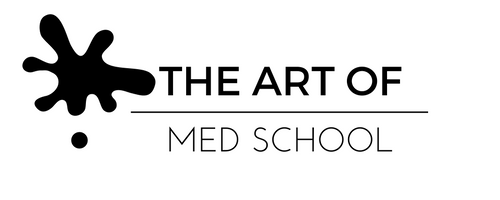“If you can’t explain it to a 5 year old, you don’t really understand it.”
- Mark Twain, Albert Einstein, Thomas Edison or someone else like that.
Hopefully, in the next few months, we’ll be making our first book available to you guys - our readers and listeners! It has been in the writing process for about a year and as I write this, is through the first round of revisions.
Originally, I went to school for Speech Communication and Studio Art. This idea of jumping over to med school and the hard sciences is kind of crazy. For quite awhile, I was searching for a way to blend the two. How can I apply my old life to my new one?
This book is part of my answer to that. Essentially, what we’re doing is taking the concept of both the Dyad and the Exchange Theory Models of Communication and applying them to health care.
What does that mean and why do you care?
Regardless of your current role in healthcare, it is necessary for you to communicate in order to do your job. It might be communicating with other staff, with primary caregivers, with the patient or their family. We hope to address the idea of how can you communicate as clearly as possible in order to have the most successful outcomes possible.
I want to leave the bulk of the interesting stuff for the book, but let’s talk about one thing that you can start thinking about now - your choice of language.
Especially when we’re students and learning a ton of new concepts, we have a tendency to always want to use the highest level of technical language available to us. It helps to display our grasp of the subject matter and denotes a certain level of higher understanding.
Yeah, that’s a bunch of crap.
If you are truly wanting to communicate with the other person as clearly as possible, you have to keep your language as accessible as possible. The value of technical language is that it generally has a much more specific definition that can be important to what we’re trying to say. However, if the definition is foreign to your listener, that doesn’t mean a whole hell of a lot. Instead, you must deliver your message using your LISTENER’s highest level of technical language. That ensures the most specificity while still using accessible language.
So, do a little practice. Start trying to explain concepts you’re learning or maybe events at your workplace to whatever layperson will sit and listen to you. You might need to be willing to buy a cup of coffee or a beer to make this happen. How clearly can you express the details while still making it accessible?
Practice this for awhile and keep checking back for more news on the book!
